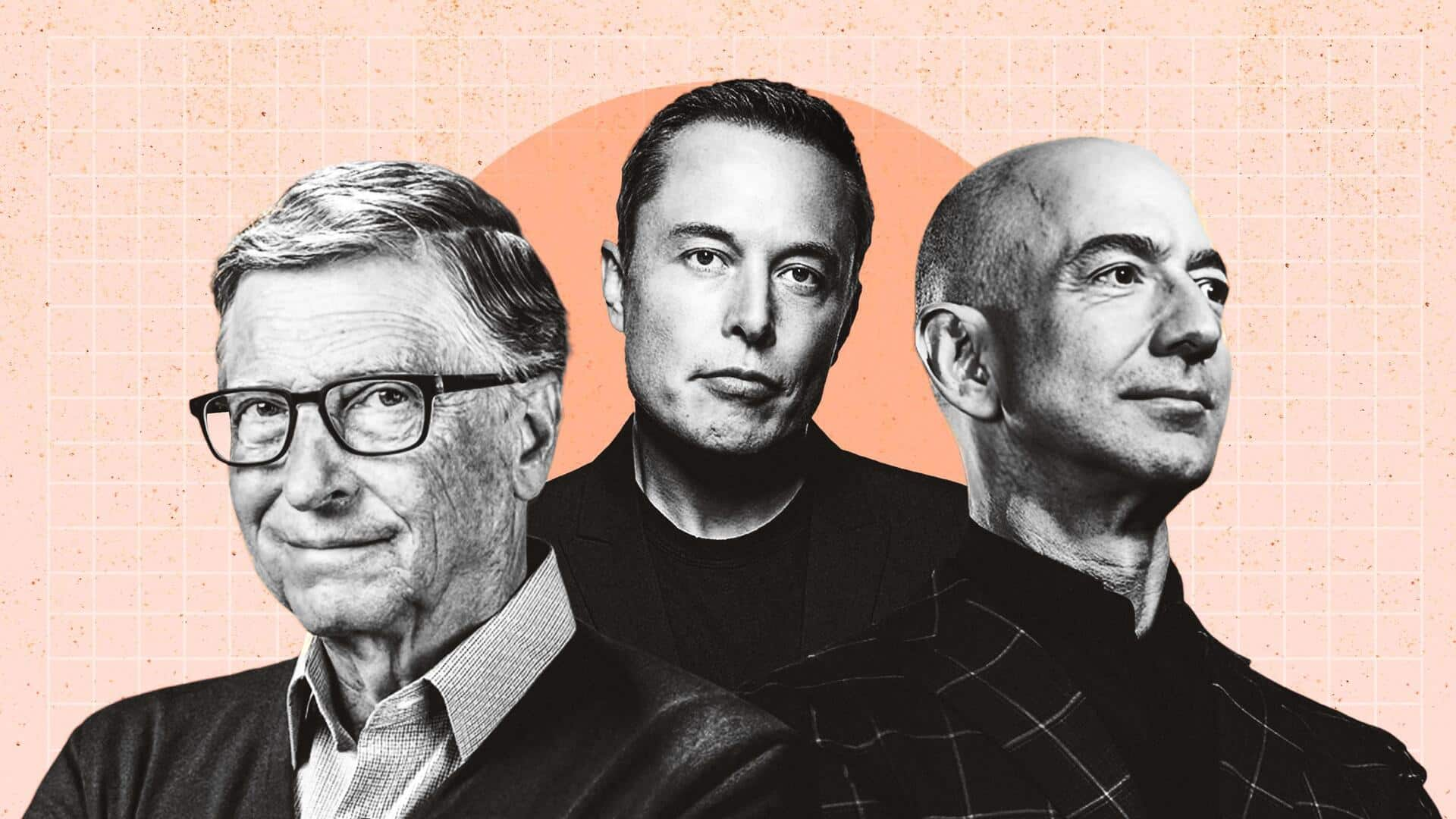
World's richest 1% emit more carbon than 66% of poorest
What's the story
In a shocking revelation, a groundbreaking report by Oxfam has exposed a harrowing truth: the richest 1% of the world's population is responsible for a staggering 16% of global CO2 emissions. This wealthy group includes billionaires, millionaires, and high-income individuals. The repercussions extend far beyond environmental concerns, affecting vulnerable communities and hampering global efforts to combat the escalating climate emergency.
Polluter elite
Polluter elite's lethal emissions
The report says the "polluter elite," comprising 77 million individuals—leading predominantly "climate-insulated, air-conditioned lives"—emitted 5.9 billion tons of CO2 in 2019. It's based on an investigation by The Guardian, Oxfam, and the Stockholm Environment Institute. This volume of emissions is forecasted to cause over a million excess deaths due to heat-related issues, employing a "mortality cost" formula used by the US Environmental Protection Agency.
Carbon inequality
Carbon inequality's unequal consequences
The suffering inflicted by these emissions disproportionately affects poverty-stricken populations, marginalized communities, impoverished individuals, migrants, and women and girls, per the report. Lacking economic and physical protection, they bear the brunt of extreme weather events like floods, droughts, heatwaves, and forest fires. The United Nations (UN) reports that 91% of deaths related to extreme weather occur in developing countries, exacerbating the climate justice crisis.
Carbon footprint
Billionaire carbon footprint unveiled
The billionaires' extravagant lifestyles contribute massively to carbon emissions. Twelve of the world's wealthiest billionaires, including Jeff Bezos, Roman Abramovich, and Bill Gates, generate more emissions from their yachts, private jets, mansions, and financial investments than the annual energy emissions of two million homes. The elite group's carbon footprint—estimated at almost 17 million tons annually—surpasses the annual emissions of 4.6 coal-fired power plants.
Political influence
Global political influence and corporate complicity
Beyond individual carbon footprints, the report exposes the complicity of the "polluter elite" in perpetuating global emissions. Billionaires, with investments in highly polluting industries, wield political power through media ownership, social networks, lobbying, and close connections with politicians. This influence hampers efforts to curb emissions, evident in the substantial subsidies provided to the fossil fuel industry despite international commitments to phase out carbon emissions.
Oxfam's call
Oxfam's call for climate justice
Oxfam calls for substantial wealth taxes on the super-rich and windfall taxes on fossil fuel companies. The proposal includes a 60% tax on the incomes of the wealthiest 1%, estimated to generate $6.4 trillion annually and potentially reduce emissions by 695 million tons. This financial strategy aims to support those most affected, mitigate inequality, and fund a transition to renewable energy.
Human toll
Human toll over decades
Utilizing a long-term perspective, the report reveals that from 1990 to 2019, the accumulated emissions of the wealthiest 1% were equivalent to wiping out the past year's harvests of the European Union (EU) corn, US wheat, Bangladeshi rice, and Chinese soybeans. This striking disparity in lifestyles emphasizes the persistent and substantial environmental footprint left by the "polluter elite" over the years.
Beyond borders
Inequality beyond national borders
The report also suggests that the wealth gap between nations explains this imbalance to some extent. In 2019, high-income countries, mostly in the global north, were responsible for 40% of global consumption-based CO2 emissions, while low-income countries, primarily in the global south, contributed a mere 0.4%. Africa, housing one in six of the world's population, accounted for just 4% of emissions.
Philanthropy
Philanthropy and controversy
Despite their environmental impact, some billionaires employ their influence to address social and environmental issues. Bezos, Gates, Sergey Brin, Elon Musk, and others have philanthropic foundations and initiatives focused on climate change. However, critics argue these efforts cannot offset the vast emissions generated by their lavish lifestyles and corporate investments. As the report concluded, philanthropy alone cannot absolve the "polluter elite" of their responsibility.
Information
Climate justice at UN COP28
At the upcoming UN COP28 in the United Arab Emirates, climate justice is set to take centerstage. The report urged swift global action, emphasizing the need for transformative policies, international collaboration, and a reassessment of power dynamics to address climate change and inequality's intertwined challenges.